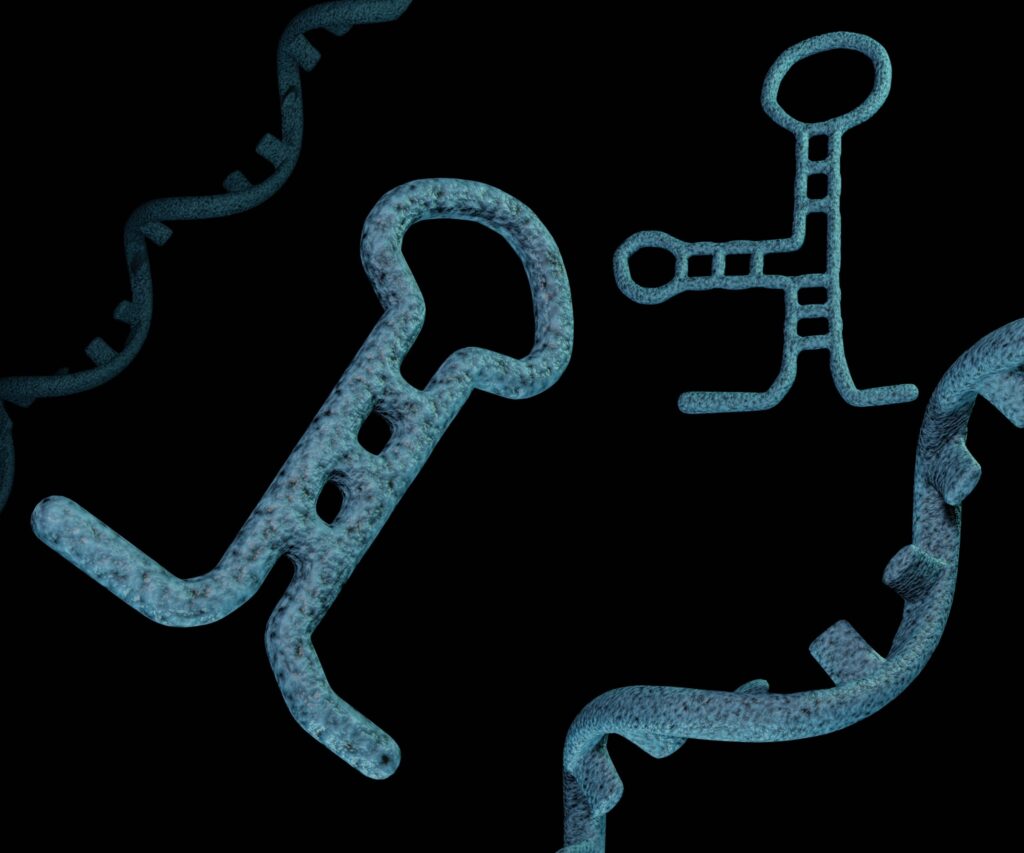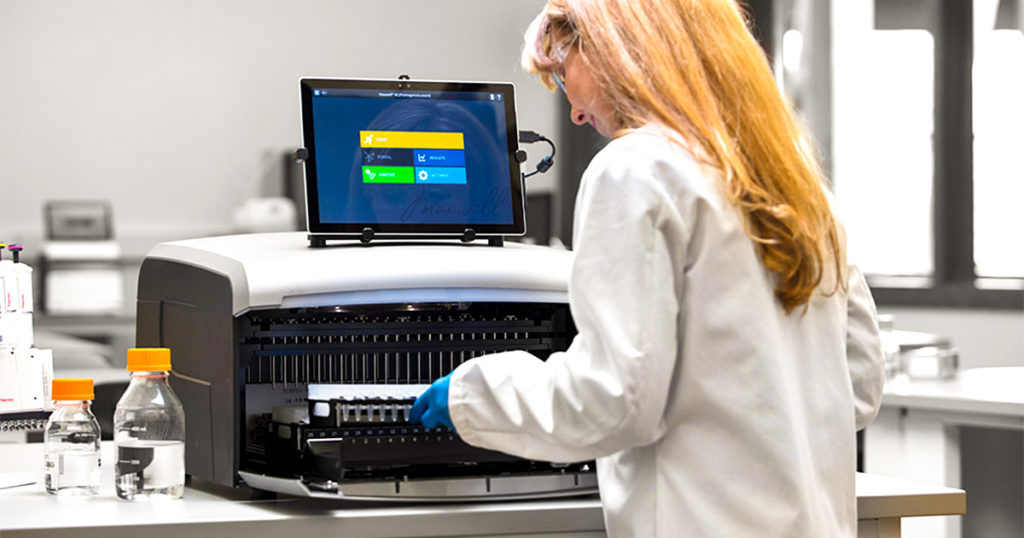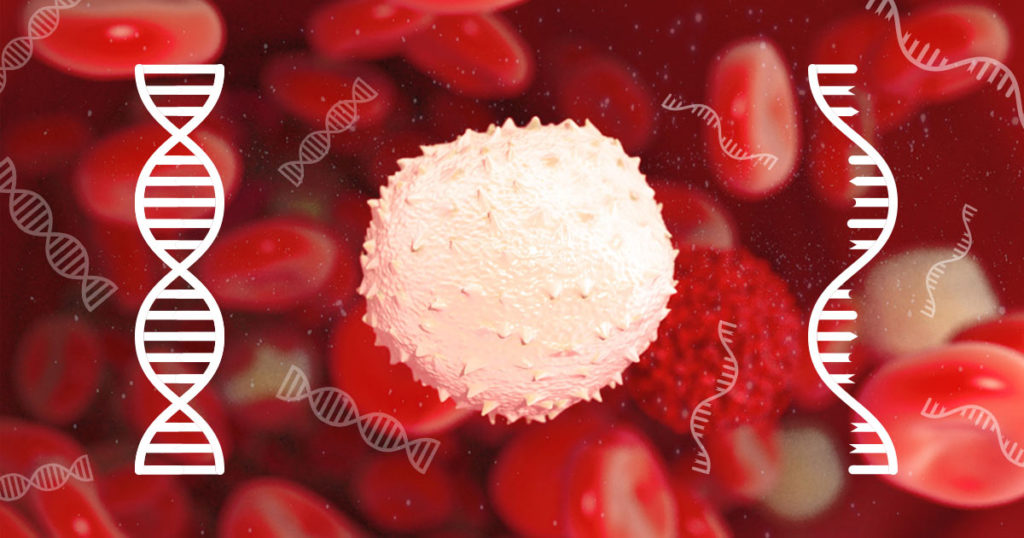This review summarizes Valto Biocontrol’s move toward a high-throughput (HT) nucleic acid extraction solution utilizing Promega Maxwell® HT simplyRNA Kit, Custom. This project was initiated by Dr. Menno Westerdijk, Head of Laboratories at Valto Biocontrol, who established a molecular laboratory onsite. The Promega Field Support Scientist team assisted Dr. Westerdijk to develop an automated nucleic acid solution using their existing KingFisher™ Flex robot. Dr. Westerdijk’s extensive experience working with KingFisher robots in the agricultural sector combined with expert guidance from Promega Field Support enabled a seamless implementation of the Maxwell® HT chemistry for his laboratory.
Continue reading “Streamlining Plant Pathogen Detection: Valto Biocontrol’s Integration of Promega High-Throughput Nucleic Acid Extraction Platform”automated RNA extraction
What do Exosomes have to do with Cancer Research?

Discovered in 1983 and initially dismissed as ‘cellular dust,’ exosomes have since emerged as pivotal players in biomedical research due to their roles in intercellular communication, potential as drug delivery vectors and as biomarkers for various diseases. These small extracellular vesicles, measuring 30–150nm, are crucial for transferring proteins, lipids, and nucleic acids — including microRNA (miRNA), mRNA, and non-coding RNA– between cells (1). miRNAs are particularly critical as they regulate gene expression and offer insights into the cellular mechanisms underlying diseases like cancer, enhancing the value of exosomes in cancer research.
Beyond exosomes importance in understanding intracellular communication and organ cross-talk, exosomes can also alter the functions of recipient cells based on their cargo. This capability makes them extremely valuable in providing insights into alterations in cellular communication, tumor microenvironments, metastasis and immune evasion.
Continue reading “What do Exosomes have to do with Cancer Research?”Growing Our Understanding of Rose Rosette Virus Through Reverse Genetics

Roses, the universal symbol of love and affection, are one of the most popular ornamental flowering shrubs used by landscapers and home gardeners and account for almost half of the billion-dollar ornamental plant market. The growing prevalence of rose rosette disease poses a significant threat to these industries. This lethal disease is caused by the Rose rosette emaravirus (RRV) and transmitted by the tiny eriophyid mite, Phyllocoptes fructiphilus. Infection by RRV results in prolific growth of clustered and bunched plant shoots (witches’ broom), malformed flowers and leaves, malformed shoots and enlarged stems and abundant leaf growth and thorniness. This excessive growth depletes the plant’s energy, eventually causing death.
Emerging and Devastating Plant Viruses of the Genus Emaravirus
RRV is a single-stranded, segmented, negative-sense RNA virus belonging to the genus Emaravirus, a relatively new genus that was established in 2012. These emerging viruses can be devastating to trees, herbaceous woody plants and vines. At Texas A&M University, Dr. Jeanmarie Verchot’s lab is working to better characterize and understand these new viruses. In addition to threatening roses, these viruses cause damage to important agriculture crops such as wheat and pigeon peas. They also endanger sensitive ecosystems when they infect plants specialized to a particular habitat, as is the case with Palo verde broom virus infection of palo verde trees of the Sonoran Desert (1).
Continue reading “Growing Our Understanding of Rose Rosette Virus Through Reverse Genetics”Why Bring Automated Nucleic Acid Extraction into Your Lab?

Nucleic acid extraction is a time-consuming, resource-intensive process, but it doesn’t have to be. Automated systems are becoming more and more accessible and often can be operated with simple “plug and play” kits, freeing valuable resources
With these systems increasingly within reach, perhaps you’re thinking about introducing automated nucleic acid extraction into your lab. As you consider your options, here’s eight reasons why we think you should automate your nucleic extraction workflows.
8 Reasons to Automate Nucleic Acid Extraction in Your Lab:
1. Reach your project milestones and publish faster.
In the fast-paced, competitive environment of research and technology development, efficiency is key to reaching project milestones and publishing your work. Managing your resources effectively–especially time–can help you reach those goals.
Time spent on manual nucleic acid extractions is time lost on parallel work, which cuts down productivity. Automation is not only often faster than manual preparations, but it also frees your team to do more valuable hands-on work.
As an example, the Maxwell® RSC cuts 40 minutes of hands-on-time per 16 samples. As the number of samples scales to 96 and beyond, liquid handlers like the Hamilton Star or Tecan Fluent can save many hours of hands-on-time per day.
Continue reading “Why Bring Automated Nucleic Acid Extraction into Your Lab?”Finding the Right Maxwell® RSC Kit for Your Nucleic Acid Extraction
This blog was written by guest writers Paraj Mandrekar (Technical Services Scientist 3) and Michelle Mandrekar, (Research Scientist 4).
Here are some designer’s notes comparing the Maxwell® RSC Blood DNA and the Maxwell® RSC simplyRNA kit chemistries for nucleic acid extraction.
The Maxwell RSC Blood DNA Kit and Maxwell RSC simplyRNA Blood Kit were both developed from the same non-silica-based purification chemistry and use the same underlying paramagnetic particle. This chemistry is characterized by an extreme binding capacity (the capacity of nucleic acid that can be bound on the particle), leading to both chemistries being capable of isolating large amounts of nucleic acid volumes and then eluting into relatively small volumes (50 µL). It is not unusual with either chemistry to have isolates that exceed 100 ng/µL. Although the chemistries have several similarities, there are some important distinctions between how the two chemistries were designed that influence which kit you choose for your nucleic acid extraction.

